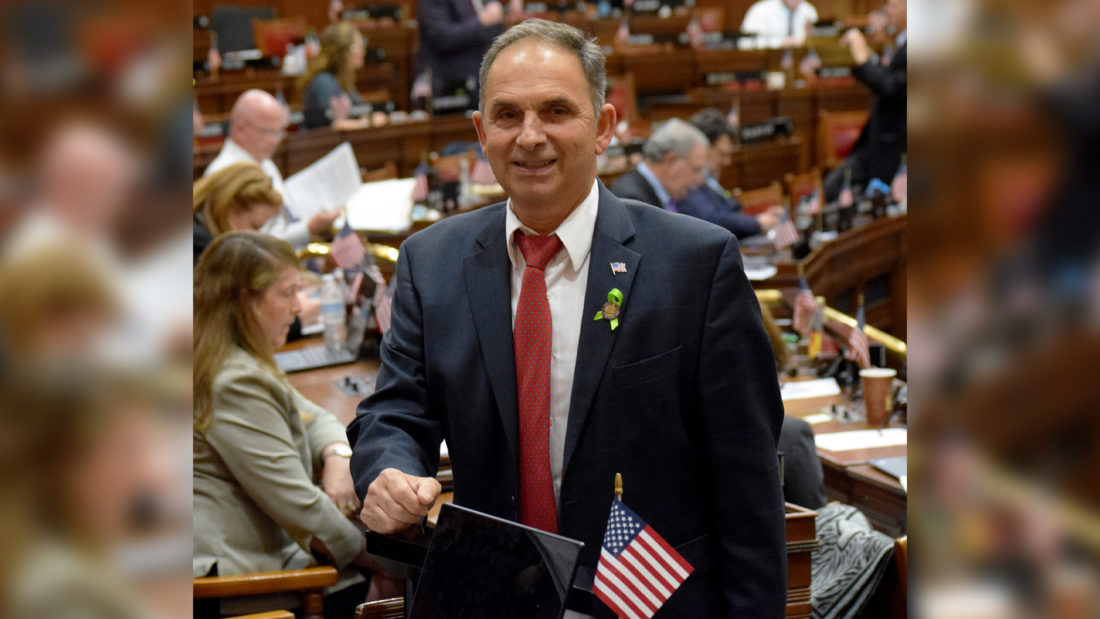State Rep. Dave Yaccarino (R-87) voted to adopt the FY 2024-2025 Connecticut state budget, headlined by a historic cut to the state income tax for middle- and low-income earners and families.
The fully balanced bipartisan budget features over $150 million for local education, establishes a phase-out on pension and annuity taxes, investments in public safety, and strict adherence to fiscal guardrails established in the 2017 budget agreement. Each of these key initiatives were proposed and supported by House Republicans dating back to 2022, when they proposed the income tax cut included in the final compromise.
“This state budget addresses vital needs in our communities by adopting many of the initiatives my Republican colleagues and I proposed this session. I am proud to support this agreement and celebrate the investment that it makes in our teachers and education, our seniors through an easement on retirement income taxes, and a legitimate income tax cut for the middle class,” Rep. Yaccarino said. “This is not a perfect budget – none are – but it is right to include crucial component that Republicans continue to hear from their constituents.”
Income tax cuts included in the budget reduce the bottom two marginal tax rates – from 3% to 2% and from 5% to 4.5% – with full benefit going to single filers earning under $105k and joint filers earning under $210k.
The new state budget will bolster Education Cost Sharing (ECS) funding which directly infuses our local schools with additional tools to strengthen our children’s education. In receiving these ECS funds, municipalities can better allocate the monies saved by the funding without raising costs for taxpayers. The budget also fully funds the Excess Cost grants for special education reimbursements to towns.
North Haven is projected to receive $4,618,266 in ECS funding over the budget biennium, more than a 15% increase from FY 2023.
Additionally, the budget will shrink the size of state government by requiring state agencies to follow real-world hiring principles. In doing so, the state will save $200 million.
Connecticut seniors are supported in the budget agreement, which eliminates the benefits cliff on their pension and annuity income. The plan phases out the income tax exemption on those earnings post-retirement gradually.
Omitted from the final document were other strong Republican initiatives like a first-ever child tax deduction of $2,000 per child, but improvements to an opt-in pass-through entity tax credit to benefit small businesses was approved.
Funding to improve safety and training for local firefighters were included, assisting in promotion from Firefighter I to Firefighter II, an additional $5 million in firefighter cancer relief funding, and helping to remove PFAS, which contains dangerous carcinogens, from standard use in fire service operations.
The bipartisan state budget was enabled by honoring the spending, volatility, and bonding caps enacted by Republicans in the 2017 budget agreement that were re-certified early in the 2023 legislative session.
The budget passed on a 139-12 vote and a 35-1 vote in the Senate. It waits to be signed by Governor Lamont.
